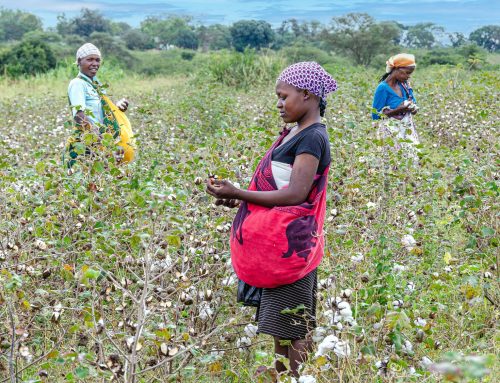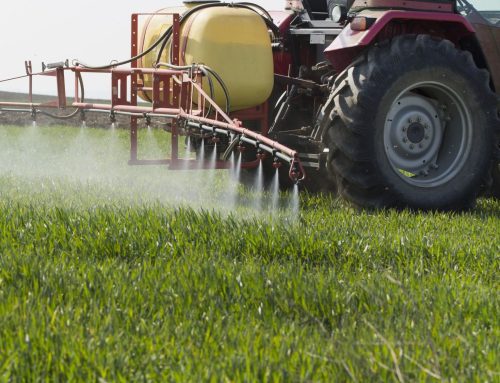The need for sustainable farming has never been greater. This World Cotton Day we are celebrating the organic cotton farmers leading the way in Benin. A programme, supported by PAN UK and in collaboration with Organisation for the Promotion of Organic Agriculture in Benin (OBEPAB), is proving that organic cotton farming not only outperforms conventional methods but also significantly enhances the livelihoods of farmers.
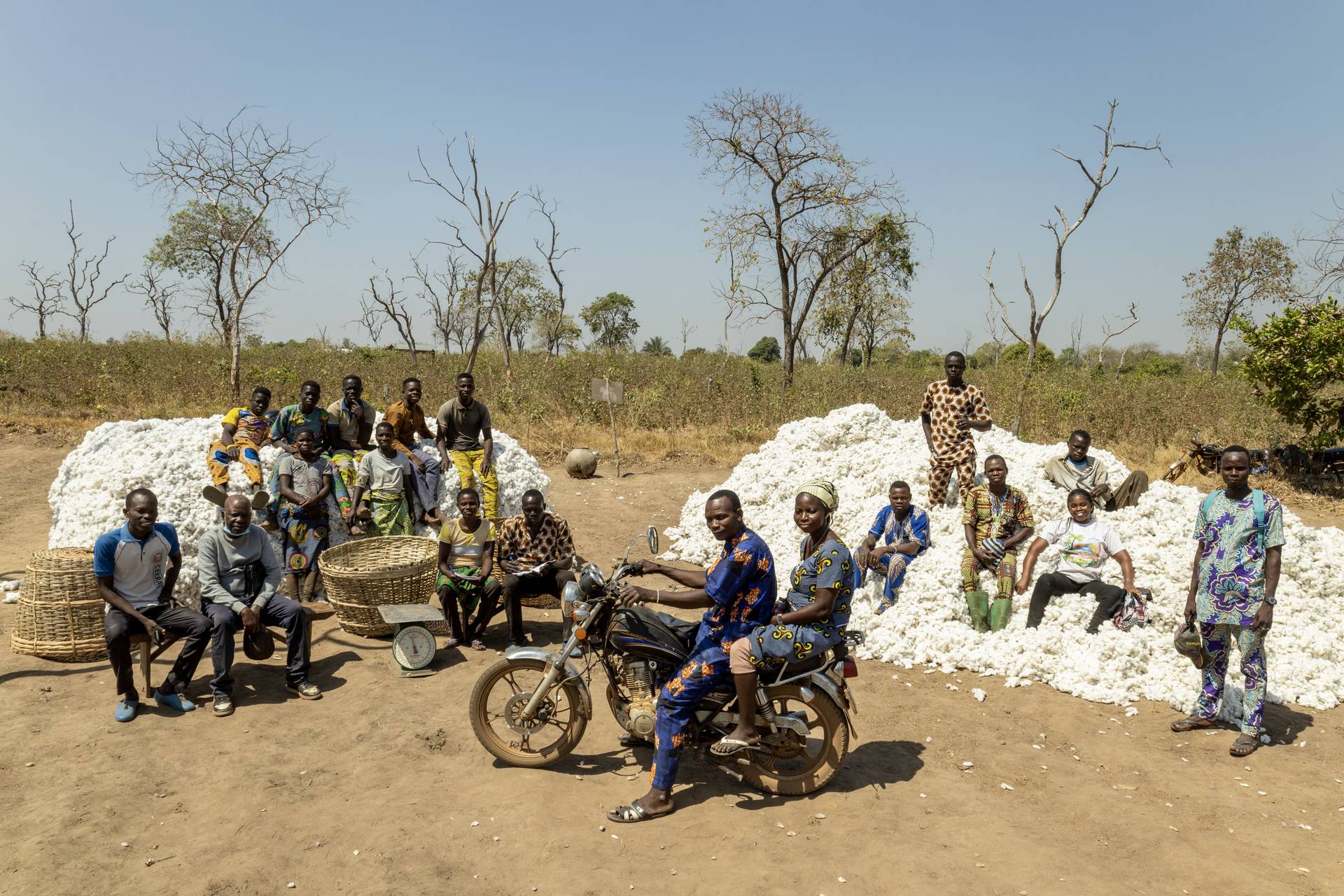
Organic cotton farmers gather around a cotton harvest in Benin. © Lindokuhle Sobekwa
Scaling Up: Benin’s organic cotton sector is growing fast
The programme is doubling the production of high-quality organic cotton in Benin and has trained approximately 9,000 farmers in organic practices, providing substantial economic, social and environmental benefits. Over the last season, 8,170 farmers have produced 1,587 MT of high-quality organic cotton lint and 740 MT in conversion.
A key milestone, has been the achievement of Cotton Made in Africa certification, signalling that Benin’s organic cotton production is ready to enter the mainstream. Expansion could benefit thousands more farming families, providing economic stability and securing a greener future for the nation.
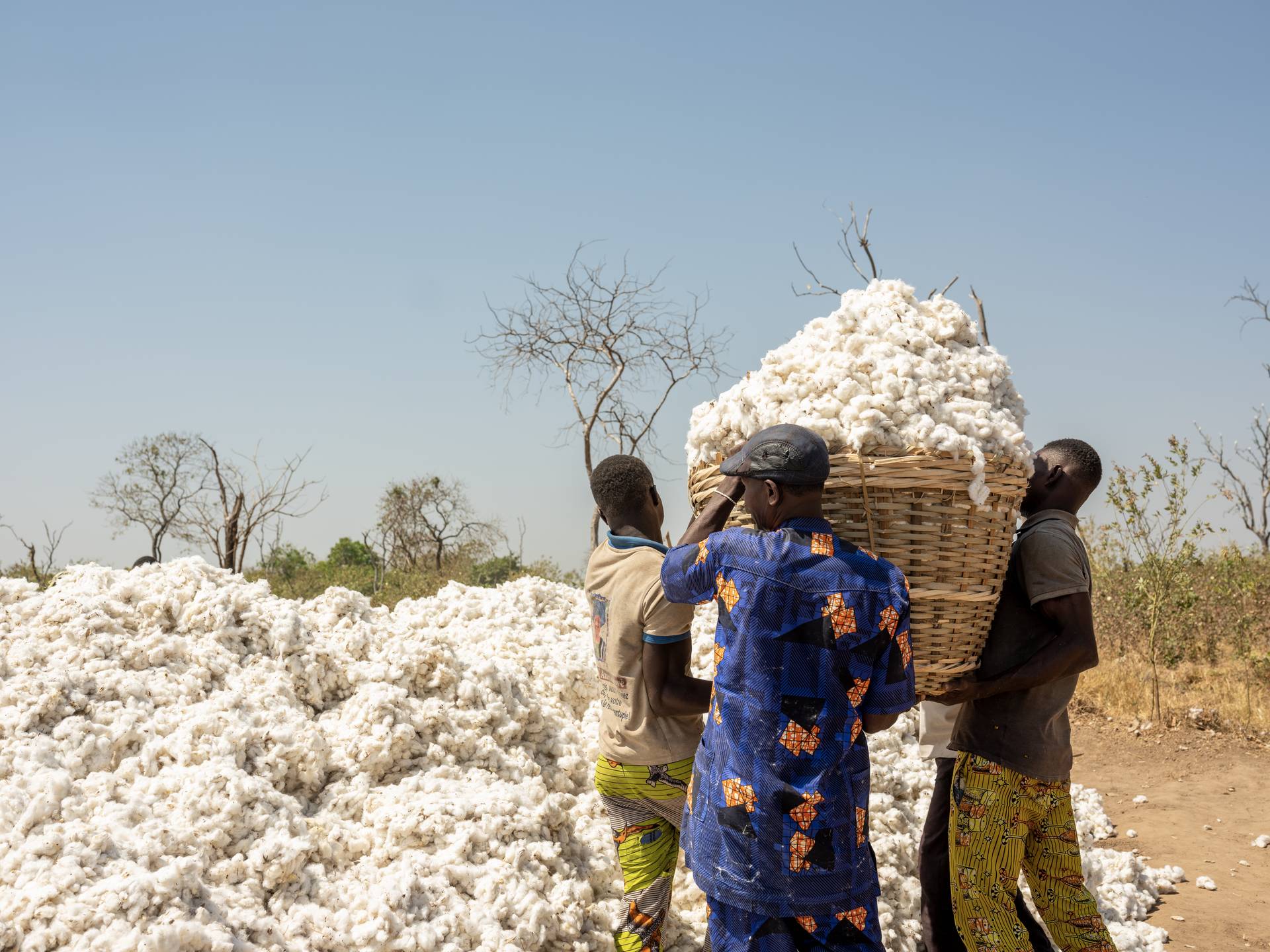
Organic cotton farmers preparing cotton for transport in Benin. © Lindokuhle Sobekwa
Economic and Social Empowerment
The impacts of organic cotton in Benin are clear: higher earnings for smallholder farmers, more fertile soil and improved food security. Gender equity has significantly improved and more girls are in school. Cotton income is crucial for meeting basic needs. With climate change increasing complications, such as drought, flooding and pest outbreaks, organic farmers are more resilient than conventional growers. It is also proving to be more profitable. By eliminating the need for expensive synthetic fertilisers and pesticides, organic farmers are able to reduce their production costs, leading to higher profits.
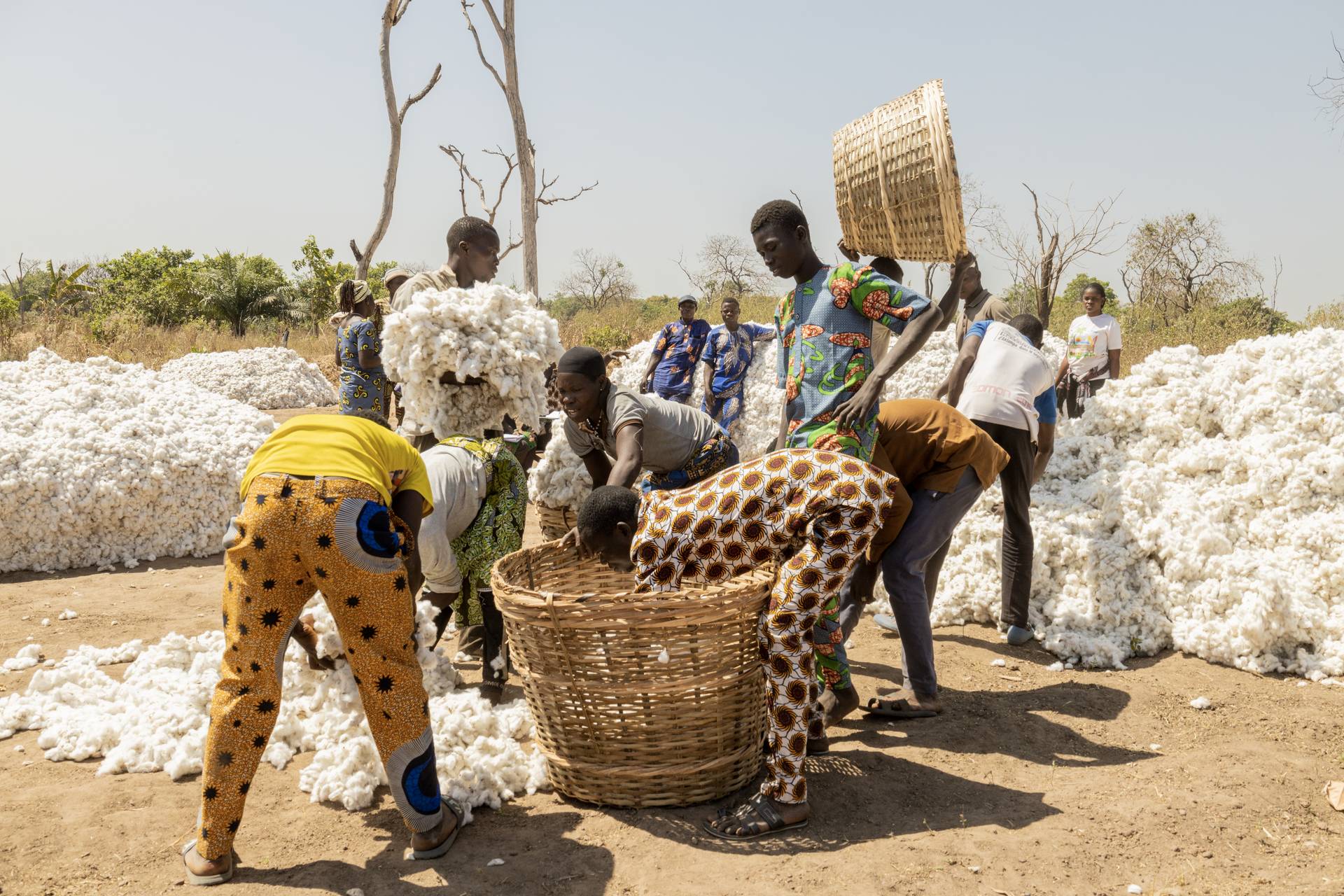
© Lindokuhle Sobekwa
Innovation and Farmer-Led Research
One of the key drivers of the programme’s success is the emphasis on farmer-led research and innovation. PAN UK and OBEPAB use the Farmer Field School (FFS) approach, which encourages farmers to learn by doing. Farmers participate in experiments and field trials, testing new techniques such as the use of oil palm cake, a local by-product of palm oil production, as an organic fertiliser. These participatory trials help farmers adopt effective organic practices while promoting a culture of continuous learning.
In partnership with Benin’s Cotton Research Institute, trials are being conducted to evaluate new high-quality cotton seed varieties that are less susceptible to insect pests and better adapted to challenging agroclimatic conditions. Other trials include testing commercially produced liquid bio-fertilisers, cover cropping combinations and alternative botanical bio-pesticide formulations. Most notably, organic farming practices have led to soils being 49% higher in soil organic carbon (SOC) than those on conventional farms, leading to better nutrient uptake, water retention and fibre quality.
Paul and Elisabeth’s story
Paul Leode and Elisabeth Degbohoue have been farming their land in Glazoué in Benin’s central Aklampa district, for more than fifteen years. They grow cotton in rotation with pigeon peas, peanuts, sesame and manioc.
Paul says: “Producing organic cotton is a change of behaviour that has never been easy, but with the conviction and spirit of protecting health and the environment, I have had the courage and the will to overcome the use of chemical inputs.
“Thanks to organic cotton production, I’m able to rotate and combine food crops with growing products to sell without having to worry about contamination. As a result, I no longer need to go to the market to buy food products, because I produce enough to meet my family’s needs.
“[Organic farming] has enabled me to improve our income through a 20% premium on top of the conventional price. It has enabled me to send my children to school.”
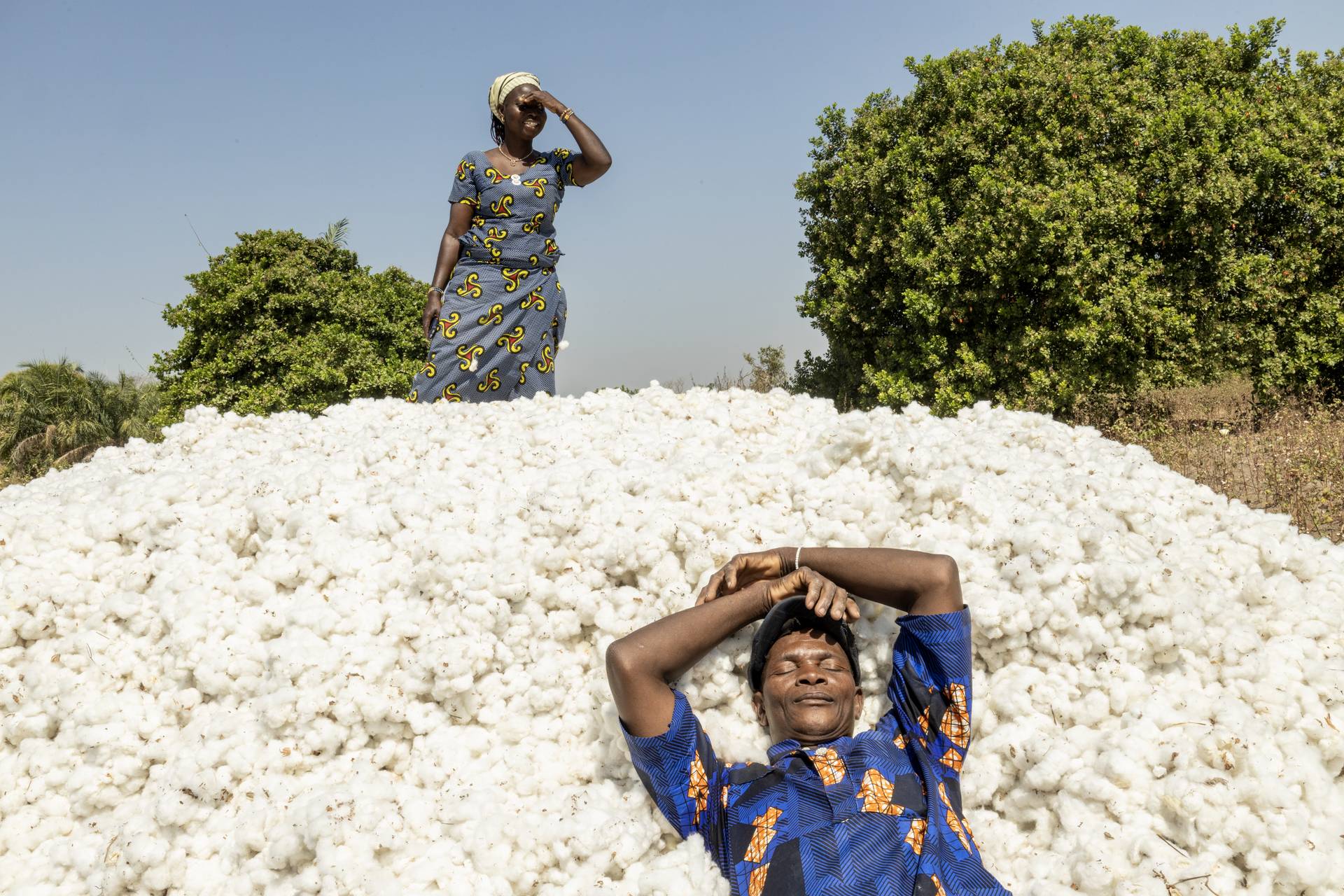
Paul Leode and Elisabeth Degbohoue – organic cotton farmers in Benin. © Lindokuhle Sobekwa
The Benin organic cotton project, backed by a GIZ-funded consortium, is working to increase transparency throughout the supply chain, promote fair practices, and encourage long-term investments in the sector. This collaborative effort, involving TRAID, Aid by Trade Foundation, Paul Reinhart AG, and the German Federal Ministry for Economic Cooperation and Development (BMZ), provides buyers with the chance to trace their products from farm to shelf. We seek partnership with the supply chain to provide stable, long-term funding for growth of Benin’s organic cotton sector.
Elisabeth says: “My hopes for the future of organic cotton production include spreading the word about its benefits to my family and friends, so as to increase the number of people growing organic cotton.”
She add that: “Organic farming will help to better protect the environment and that the extra income will help to build local community infrastructure such as wells, shops and access to markets.
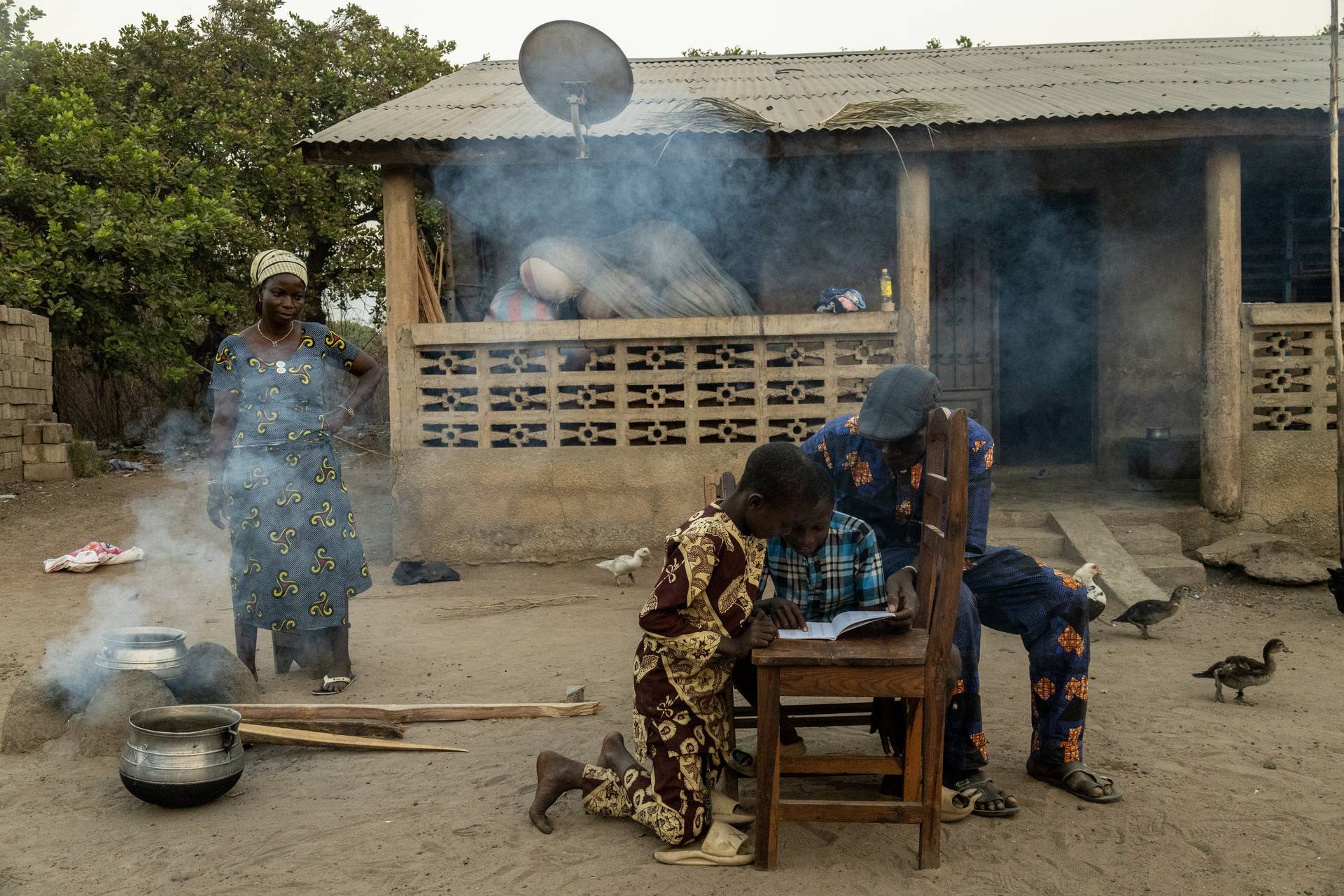
Paul and Elisabeth now have the funds to send all of their children to school. © Lindokuhle Sobekwa
Thanks to Textile Exchange and Magnum photographer, Lindokuhle Sobekwa, who travelled to Benin to meet with the organic cotton farmers pictured above. All photos are © Lindokuhle Sobekwa.

